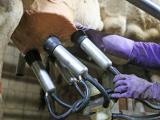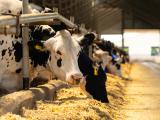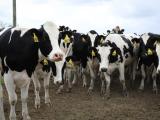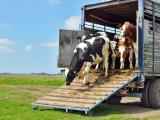May 5, 2010
Indonesia reports two H5N1 cases one death
The Indonesian Ministry of Health has reported two human cases of H5N1 avian flu that have occurred since February, according to the Jakarta Post. One patient, who died, was a 4-year-old girl from Pekanbaru, the capital of Riau state on Sumatra island, who died Apr 28 after 9 days in a hospital. The second patient, a 45-year-old woman from Malang on the island of Java, visited a community health center for flu-like illness but recovered.
May 5 Jakarta Post story
Equitable access to flu strains and vaccines elusive
The H1N1 swine flu pandemic and the ongoing threat of H5N1 avian flu have highlighted the ongoing problem of equitably sharing flu strains and vaccines between developing and industrialized countries without providing solutions, Prof. David Fidler of Indiana University wrote in Public Library of Science: Medicine (PLoS Med). A global access framework is needed, but the needs of developing and industrialized nations are so different that no clear path to one exists, he said.
May 4 PLoS Med article
WHO clean-hands campaign passes registration goal
The World Health Organization (WHO)'s "Save Lives: Clean Your Hands" campaign has launched with the news that the agency had surpassed its goal of getting 10,000 hospitals signed up for its hand-hygiene promotion campaign. The agency reported today that more than 11,500 hospitals worldwide have committed to the campaign's goals and plans for improvement. The campaign continues this week with webinars and a global survey of hand-hygiene compliance.
May 5 WHO "Save Lives: Clean Your Hands" page
Pertussis vaccination may trigger early onset of seizures in some
Children who possess a particular mutation, SCN1A, that leads to the development of the seizure disorder Dravet syndrome appear to experience seizures earlier if they are vaccinated against pertussis, Australian researchers report in a paper published on the Web site of Lancet Neurology. Children with the mutation, who would have been expected to develop seizures when they were 26 weeks old, instead began to experience them within 2 days of vaccination, at about 18 weeks. The study of 14 children and an accompanying editorial say that, aside from the earlier arrival of seizures, the children's outcomes were no different from children vaccinated later, and so children with the mutation should still be vaccinated.
May 5 Lancet Neurol study abstract
May 5 Lancet
Neurol editorial extract
Gene study finds key to possible universal E coli vaccine
Researchers working on a possible vaccine against pathogenic forms of extraintestinal Escherichia coli have found a group of antigens that might someday be combined to offer broad protection against other E coli strains, such as the E coli O157:H7, the frequent culprit in foodborne illness. The group, from a Novartis lab in Italy, published its findings in Proceedings of the National Academy of Sciences. First, the investigators used a process called reverse vaccinology to compare the genome from an extraintestinal E coli strain that was isolated from a neonatal meningitis case against genomes of other extraintestinal and nonpathogenic E coli strains. They identified 19 "genomic islands" that weren't present in the nonpathogenic strains. Then, using reverse subtractive vaccinology methods, they identified nine possible vaccine candidates that are conserved among several E
coli strains. They tested the nine antigens in a sepsis mouse model, and protection ranged from 13% to 82%. Scientists may be able to combine some of the antigens to develop a broadly cross-protective vaccine against extraintestinal E coli, and that initial results suggesting that some of the antigens are present in intestinal E coli might lay the groundwork for a vaccine against all pathogenic E coli strains, the authors write.
May 4 Proc Natl Acad Sci study


















